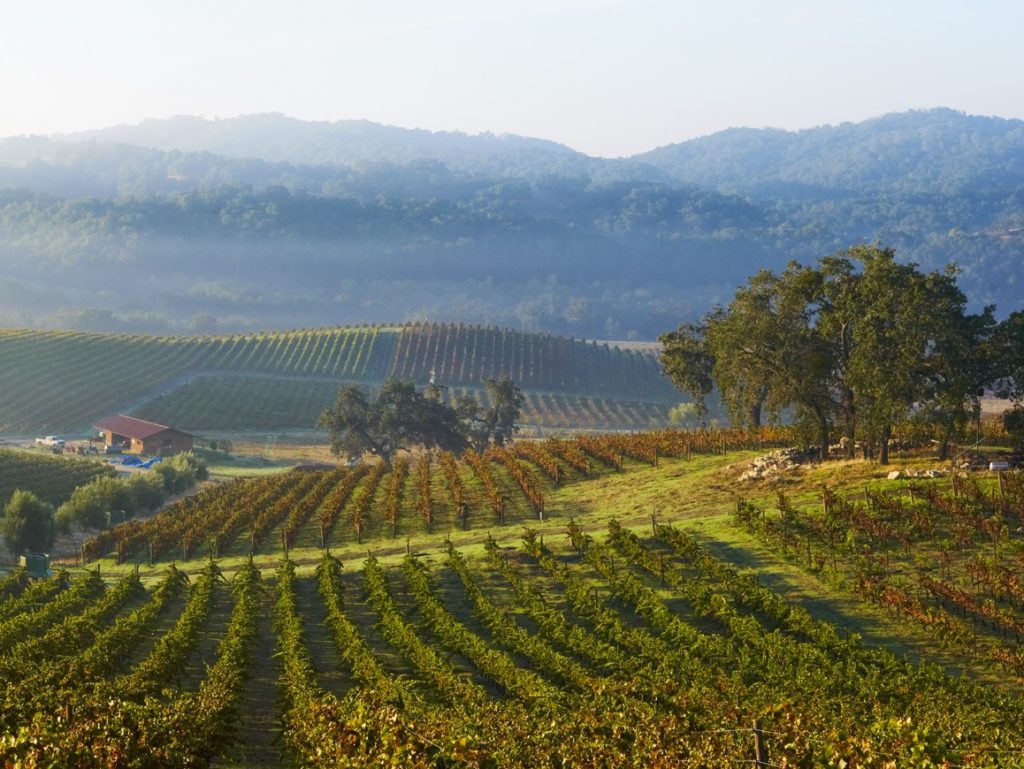October 2, 2011
Matthew 21:33-43
Not all of Jesus’ parables describe the bright future Kingdom of God. Some of them describe our present world. Those are often tragic parables. We have an example of this in today’s Gospel of the Parable of the Vineyard. This parable presents to us a downward spiral of destruction and violence in which everyone is harmed.
To understand the force of that downward spiral, we have to appreciate where the parable begins. It begins in a very good place. There is a verdant and protected vineyard with a hedge around it, a winepress in it, and a tower to guard it. There is every indication that this vineyard will be profitable, that it will produce an abundant harvest for all who are associated with it: for the owner who possess the land, built the tower, and dug the wine vat and for the workers who till the field and harvest the grapes. The parable begins in optimism and hope.
Then things go astray. The tenants decide that they are going to cut the owner out of his due produce. We are not told why they make this decision, only that they do. But their conviction about doing it is so strong that they are willing to go to any means to accomplish it. This leads to violence. They beat and kill the messengers and finally the owner’s son. Moreover, the violence of the tenants leads to corresponding violence from the owner, who kills the tenants. By the end of the parable everyone has been harmed, and the vineyard is destroyed.
Why does Jesus tell such a grim parable? He is warning us about making crucial decisions which can lead to a downward spiral. In the parable it was the decision by the tenants to cut the owner out. It was the decision by some that the goods of the vineyard did not need to be shared with everyone. Now we might call this decision greed, but we might even more appropriately call it pride. It was pride that led some in the vineyard to conclude that their life and needs were more valuable than the life and needs of others. It was pride to decide that the rights of others could be negated.
This parable can be applied on many levels in our life. Our families could be the vineyard. Families, when they work together, produce life and joy and a bright future. But if some members of the family decide that their needs, wants, and dreams are more important than those of other members of the family, then jealously and resentment emerge. The life of the family is undermined. The vineyard could be our country. Our country is blessed with bounty and resources for all of its citizens. But when some politicians decide that it is more important to be elected than to serve the common good, when economic and social structures are set up in a way that they benefit some of the people and not the others, then the bounty of our country is dissipated. The downward spiral begins. The vineyard could be our planet, a planet graced with so many resources from the hand of God. But when some people make the decision to exploit those resources rather than preserve them or when the desire for profit becomes more important than sustaining the resources that God has given us, then common resources are wasted. The promise of the earth is lost.
Now, of course, none of us can by our decision alone change the planet or our country or even our families. But this parable reminds us that we should never take that first prideful step. We should never accept the thought that our life, ideas, or agenda are more important than those of others. The parable reminds us that we all share the same vineyard. Therefore, either we will thrive together, or we will go down together. This is why we must remember our connectedness to one another and avoid the temptation of trying to cut someone out. For when we make that prideful choice, the spiral of recrimination and violence begins. And, trust me, when that happens, it’s a long way down.

